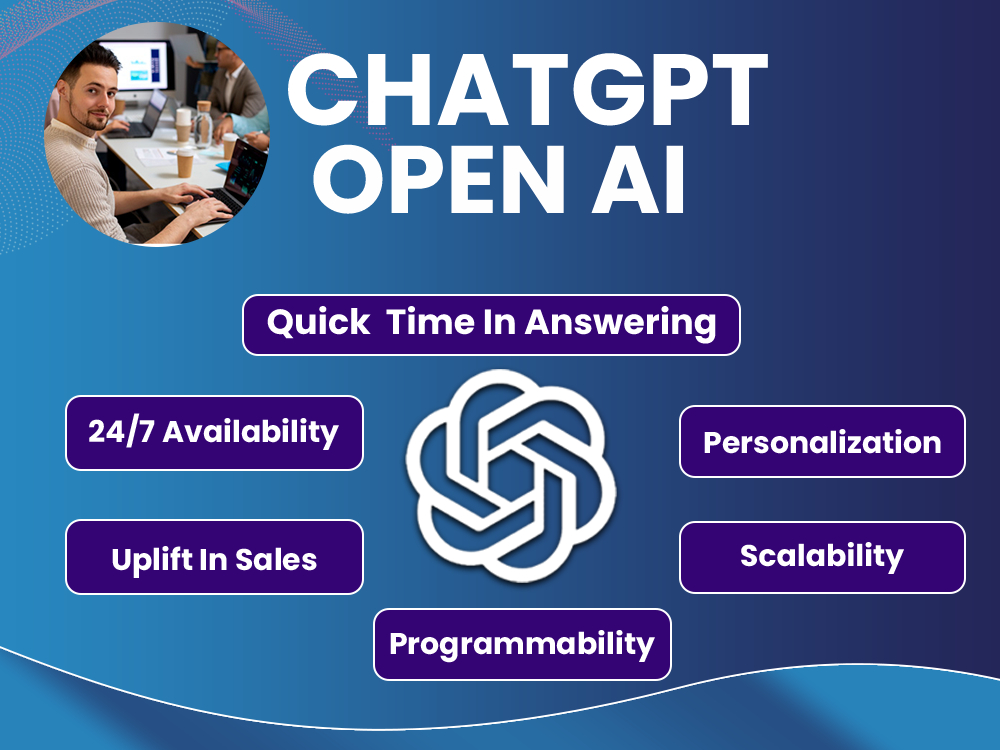Artificial Intelligence (AI), often championed as the beacon of technological advancement, conceals a darker side that demands scrutiny. Despite its touted benefits, the limitations of AI cannot be ignored. Instances of AI systems making catastrophic errors, such as autonomous vehicles causing accidents or facial recognition software exhibiting biased behavior, spotlight the fallibility inherent in these systems. The allure of AI’s potential often overshadows the reality: it is not infallible.
Beyond mere technical shortcomings, ethical concerns cast a long shadow over AI’s reputation. The decisions made by AI algorithms raise profound ethical questions, from the potential displacement of jobs to instances of biased decision-making. This ethical quandary necessitates a careful examination of the development and deployment of AI technologies. Establishing clear ethical guidelines, ensuring human oversight in critical decision-making processes, and fostering public discourse on AI ethics become imperative steps to address these ethical concerns head-on.
Privacy, a fundamental human right, faces unprecedented risks in the era of AI. The widespread use of AI in data analysis poses a significant threat to individual privacy. From intrusive data collection to potential misuse, the implications of AI on personal information cannot be understated. Safeguarding privacy in the age of AI requires a multifaceted approach, involving strengthened data protection measures, advocating for stringent privacy regulations, and educating users about the potential risks associated with AI applications.
Perhaps most insidious is the issue of human biases ingrained in AI algorithms. These algorithms are only as unbiased as the data they are trained on, often reflecting and perpetuating societal biases. Uncovering and mitigating these biases demand a concerted effort, involving regular audits and updates to training data, the incorporation of diverse perspectives in AI development teams, and widespread awareness about the far-reaching implications of biased algorithms.
In conclusion, while the promises of AI are undeniably exciting, a nuanced understanding of its limitations, ethical challenges, privacy risks, and biases is essential. A balanced approach that acknowledges the darker facets of AI alongside its potential benefits is crucial for responsible integration. Only through addressing these issues head-on can we unlock the true potential of artificial intelligence while minimizing its negative impacts on society.
Table of Contents

The Dark Side of Artificial Intelligence: Why It’s Not as Good as You Think
Artificial Intelligence (AI), often celebrated as the pinnacle of technological advancement, conceals a darker side that demands scrutiny. Despite its transformative potential, the sheen of AI fades when confronted with the stark realities of its limitations and ethical challenges. The allure of seamless automation and intelligent decision-making comes at a cost – an undeniable truth overshadowed by the fervor of technological optimism.
The blog title, “The Dark Side of Artificial Intelligence: Why It’s Not as Good as You Think,” serves as a gateway into a profound exploration of AI’s drawbacks. As we embark on this journey, we peel back the layers of utopian promises to reveal a landscape marred by unintended consequences, ethical dilemmas, privacy risks, and the deeply ingrained biases that lurk within its algorithms.
The Limits of AI, our first waypoint, forces us to confront the fallibility of artificial intelligence. Real-world examples, from self-driving car mishaps to biased facial recognition algorithms, underscore the urgency of acknowledging and rectifying these imperfections. It’s a call to action for a more transparent and accountable AI development process.
Ethical Concerns, the subsequent chapter, plunges us into the moral quandaries posed by AI decision-making. The displacement of jobs, biased algorithms influencing critical choices, and the need for human oversight prompt a reassessment of our ethical compass in the age of AI.
Privacy Risks beckons us into a realm where the ubiquitous use of AI in data analysis encroaches upon personal boundaries. As our lives become increasingly entwined with AI, safeguarding privacy emerges as a paramount concern. The narrative then pivots to Human Biases in AI, unraveling the often-overlooked reality that AI is only as unbiased as the data it learns from. Confronting and mitigating these biases becomes imperative for creating AI systems that serve society equitably.
In the final stretch, the Conclusion synthesizes these revelations, urging a delicate equilibrium between innovation and ethical responsibility. The paradox of AI lies not in its potential, but in our ability to navigate its pitfalls. “The Dark Side of Artificial Intelligence: Why It’s Not as Good as You Think” serves as a compass, guiding us through the complexities of AI’s underbelly and inspiring a collective commitment to harness its power responsibly.
Unintended consequences of AI
Unintended consequences of AI represent a pivotal aspect often overshadowed by the glittering promises of technological advancement. As we race toward a future shaped by artificial intelligence, it becomes imperative to scrutinize the unanticipated outcomes that may accompany its integration into various facets of our lives. One glaring example is the displacement of jobs due to automation, a consequence that disrupts traditional employment structures and poses challenges to workforce adaptation.
Furthermore, the reliance on AI in decision-making processes, such as criminal justice or loan approvals, introduces the risk of perpetuating existing biases or creating new ones. This unintended consequence not only raises ethical concerns but also underscores the need for continual monitoring and adjustment of AI systems to ensure fairness and equity.
Additionally, as AI algorithms evolve and become more complex, there is a growing potential for unpredictable behaviors, amplifying the importance of thorough testing and evaluation to mitigate unforeseen consequences. Balancing the tremendous benefits of AI with a vigilant awareness of its unintended repercussions is essential for fostering a responsible and sustainable integration of artificial intelligence into our rapidly changing world.
Ethical concerns with artificial intelligence
Ethical concerns surrounding artificial intelligence (AI) have become increasingly paramount as the technology continues to advance. One major ethical dilemma revolves around the decision-making capabilities of AI systems. As these systems become more autonomous, questions arise about accountability and responsibility for their actions. The lack of transparency in complex AI algorithms further complicates this issue, making it challenging to understand how decisions are reached.
Moreover, the potential for AI to perpetuate and even exacerbate existing societal biases raises serious ethical questions. Whether in hiring processes, law enforcement, or financial systems, the risk of embedding and perpetuating discriminatory practices within AI systems is a real concern. This calls for the establishment of clear ethical guidelines and standards in AI development to ensure fairness, accountability, and the protection of human rights.
Striking a delicate balance between innovation and ethical considerations is imperative to harness the full potential of AI while avoiding unintended and harmful consequences. Ethical awareness and proactive measures are essential to navigate the evolving landscape of AI responsibly and ethically.
AI and privacy issues
Privacy issues in the realm of artificial intelligence (AI) have become an increasingly pressing concern as the deployment of AI technologies proliferates. The crux of the matter lies in the extensive data collection and analysis that underpins many AI applications. From voice-activated assistants to predictive analytics, the sheer volume of personal information processed by AI systems raises questions about the safeguarding of individual privacy.
As AI algorithms crunch massive datasets to glean insights and make decisions, the potential for unauthorized access, data breaches, and misuse of sensitive information becomes more pronounced. Users often find themselves unwittingly relinquishing personal details, unaware of the far-reaching consequences. Furthermore, the lack of comprehensive regulations specific to AI exacerbates these concerns, leaving a void where privacy protections should be.
Balancing the innovative power of AI with the imperative to protect user privacy necessitates stringent measures, including robust data encryption, transparent data usage policies, and the establishment of clear legal frameworks governing AI applications. It’s imperative to strike a delicate equilibrium that fosters technological advancement while ensuring the fundamental right to privacy is preserved in the age of artificial intelligence.
Human biases in AI algorithms
In the realm of artificial intelligence, the incorporation of machine learning algorithms introduces a complex challenge: human biases embedded in AI systems. Despite the illusion of objectivity, AI algorithms are intrinsically shaped by the data they are trained on, reflecting the biases present in that data. This phenomenon raises profound concerns about fairness and equity in the deployment of AI technologies.
Whether it’s facial recognition systems exhibiting racial biases or automated decision-making processes perpetuating gender disparities, the consequences of biased algorithms can be far-reaching and detrimental to marginalized communities. Recognizing and addressing these biases is imperative for cultivating responsible AI. To mitigate bias, ongoing efforts should focus on regular audits of training data, ensuring it is diverse and representative.
Furthermore, fostering inclusivity within AI development teams is crucial, bringing together individuals with varied backgrounds and perspectives to challenge and rectify inherent biases. Education and awareness initiatives are also essential, enlightening both developers and end-users about the potential implications of biased AI algorithms. Only through a concerted effort to dismantle these biases can we pave the way for a more equitable and just integration of artificial intelligence into our society.
Artificial Intelligence drawbacks
Artificial Intelligence (AI) undeniably stands as a technological marvel, but beneath the glossy facade lies a realm of drawbacks that demand our attention. One prominent challenge is the inherent limitation of AI systems. Despite their advanced capabilities, they are not impervious to errors or unforeseen consequences. Real-world incidents, such as autonomous vehicle accidents and algorithmic biases in facial recognition technology, serve as stark reminders that AI is far from flawless.
To address these limitations, a multifaceted approach is essential. Rigorous testing protocols, transparent development processes, and a commitment to ongoing research and improvement are imperative to navigate the complex landscape of AI drawbacks. As we propel ourselves into an AI-driven future, acknowledging and understanding these limitations is not a sign of weakness but a prerequisite for responsible innovation. Only by confronting the shortcomings can we pave the way for an AI landscape that truly lives up to its transformative potential.
Risks of artificial intelligence

Artificial intelligence, despite its immense potential, is not without its perils. One of the paramount concerns revolves around the inherent risks associated with its deployment. As AI systems become more integrated into our daily lives, the stakes are higher than ever. From cybersecurity threats to the potential misuse of AI-powered tools, the risks are multifaceted. The complexity of AI algorithms and the sheer volume of data they process make them susceptible to vulnerabilities, opening the door to malicious actors seeking to exploit weaknesses.
Moreover, the opacity of some AI decision-making processes poses challenges in understanding and mitigating these risks effectively. The consequences of a breach or misuse could be severe, ranging from compromised privacy and data breaches to widespread societal disruption. It is imperative to address these risks head-on, implementing robust security measures, fostering transparency in AI development, and establishing comprehensive regulatory frameworks to safeguard against the darker side of artificial intelligence.
As we embrace the transformative power of AI, a proactive and vigilant approach is essential to navigate the intricate landscape of risks and ensure that the benefits of this technology outweigh its potential drawbacks.
FAQs: Why Artificial Intelligence is not Good?
- Is all AI biased? Not all AI is inherently biased, but biases can emerge from the data used to train algorithms. Developers must actively work to minimize bias in AI systems.
- How can job displacement be mitigated? Mitigating job displacement requires a proactive approach, including upskilling the workforce and creating policies that address the impact of automation.
- Are there regulations for AI development? While some regulations exist, the rapidly evolving nature of AI necessitates ongoing efforts to establish comprehensive guidelines and ethical standards.
- Can AI errors be completely eliminated? Eliminating errors in AI is challenging but ongoing research and advancements in technology aim to minimize these errors through improved algorithms and testing.
- What can individuals do to protect their privacy in an AI-driven world? Individuals can protect their privacy by being cautious about sharing personal information online and advocating for robust data protection policies and regulations.


